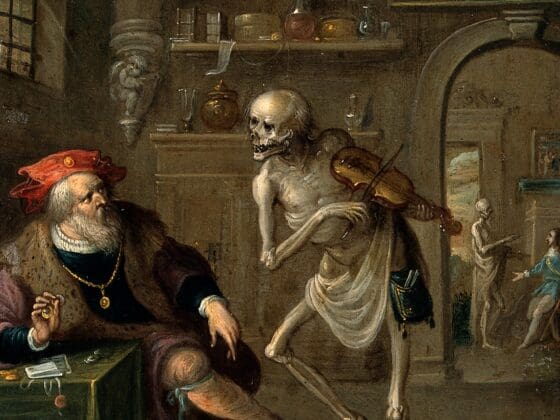On February 3, 1998, Karla Faye Tucker, the confessed pickaxe murderer who came to faith in Christ while in prison, was executed, having been refused a pardon by the governor of Texas, George W. Bush. The newspapers and Internet were buzzing with views pro and con about her.
Now we are approaching Holy Week, which recounts another execution on Calvary hill, of Jesus of Nazareth between two thieves. What is the connection between these two deaths?
One Internet observer noted that most people assume that capital punishment is supposed to be bad for the condemned and good for society. “However,” he concluded, “I think its really exactly the opposite. Discussions with a couple of veteran prison chaplains have convinced me that nothing clarifies the mind and soul more than the absolute certainty of imminent death.”
“The ugly effects of capital punishment,” he continues, “are rather to be observed in the bloodlust of the ravening mobs who develop a perverse taste for the spectacle.” These ugly effects are unavoidable, because justice is a kind of revenge, an eye for an eye and a tooth for a tooth. Indeed the cry “Let her fry!” is often found on the lips of those who most naturally claim death as justice, the relatives of a victim who was never given a second chance to live.
Frankly, I find the vengeful reaction of the outraged relatives far more real than the “Yes, she did an awful thing but nothing merits the death penalty” attitude of many Americans, or the ideology found in the movie “Dead Man Walking,” which turns the death penalty into a demonic tool of the System and the criminal’s walk to the electric chair into a via dolorosa.
There is part of me that takes satisfaction in seeing someone pay for his sins. Human justice has been satisfied. But here’s the trick: as soon as I transfer this satisfaction to the divine realm, I end up saying: “I thank you, God, that I am not as this sinner.” Which brings me, after some reflection, to the foot of the Cross.
One of the criminals who were hanged railed at him, saying, “Are you not the Christ? Save yourself and us! But the other rebuked him, saying, “Do you not fear God, since you are under the same sentence of condemnation? And we indeed justly; for we are receiving the due reward of our deeds; but this man has done nothing wrong.” (Luke 23:39-40)
I find the two thieves’ reactions both realistic and typical: the condemned person wants to live and, deep down, knows he deserves to die. Karla Faye Tucker had the decency of heart to admit to both these motives.
Meanwhile, the soldiers and the crowd, failing to distinguish the innocent from the guilty, mock Jesus with taunts of “Save yourself!” But he will not save himself, nor will he save the penitent thief in this life. Instead he offers the man something far more satisfying: “Truly, I say to you, today you will be with me in Paradise.”
Good Friday was bad for Him and good for us, as the Lord God laid upon Jesus the iniquity of us all (Isaiah 53:6). The atonement, as we call it, was nothing less than a transaction between heaven and earth. When Jesus died, the death warrant for our sins was ripped up in the one Courtroom that counts. No political act, be it a governor’s pardon or the abolition of the death penalty, dare mimic this astounding act of God’s free grace.
In his most profoundly Christian play, Measure for Measure, William Shakespeare considers what it would take at a political level to reconcile justice and mercy – including the demands of the law and the victim. He concludes that such a reconciliation can happen only if the Prince becomes God-like and the people “born again” with a sense that “there but for the grace of God go I.” Such a regime, Shakespeare suggests, is more a dream than a reality.
Christians believe that such a kingdom has been chartered by the death of Jesus Christ. It cannot be secularized without being distorted, but it can appear in the lives of those of us who love each other as Christ has loved us. The great Victorian preacher Charles Spurgeon noted: “Of the Christian it can be said that he does not owe God’s justice anything, for Christ has paid the debt His people owed; for this reason the believer owes the more to love.”
Karla Faye Tucker picked up and read a Bible from the prison chaplaincy and it changed her life. She was born again into the Kingdom of God and went on to minister love and hope to others. Did Karla Faye redeem her heinous act? No, not by her life or by her death. What she did do is point the way to Him, “who might the ’vantage best have took” (in Shakespeare’s phrase) but instead “found out the remedy.”
On Easter morning, the penitent thief woke up in Paradise, his sins purged whiter than snow. I am confident that Karla Faye Tucker, the penitent murderer, is with him now, a sheep of his flock, a sinner of his redeeming.
This meditation appeared in the March 1998 edition of Encompass, the newsletter of the American Anglican Council. The governor who refused a pardon for Karla Faye Tucker was George W. Bush.





